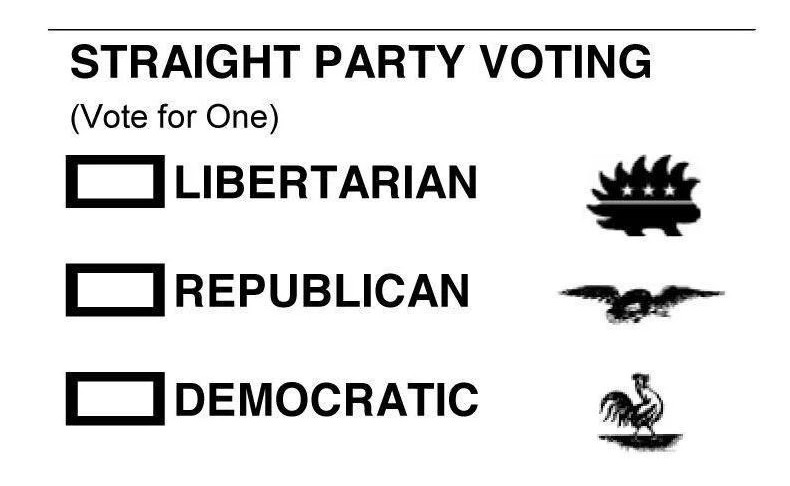The Dispute Between Your Legislator and Governor Stitt
For the first time in the modern history of the state, a Legislature has forced through a general appropriations bill – without the approval of the Governor.
The specter of a super-majority of the Legislature passing a state budget against the wishes of a governor from their own political party has understandably likely caught the attention of the casual observers who are not normally attune to the day-to-day, inner-capitol disputes that are mostly confined to the political class of the capitol.
Worse, even in the face of unprecedented circumstances, the Legislature has doubled down on its inexplicable spending and passed multiple irresponsible spending bills, including the expensive Obamacare Medicaid expansion, a reversal of the state’s 15-year-old retirement-system-stabilization plan, and the green lighting of more than 150 million dollars of new debt for any number of liberal higher education endowed chair programs. When Stitt tried to hold the line, many legislators voted to override 10 of his vetoes.
How did all of this happen? The following is a bit of background to this situation, some of the likely reasons for this divide and the inexplicable spending, and an outlook towards the future.
Background
Sttit is a business-world outsider who still thinks like a businessman and not a politician. This is good because he is still a real person, not a shelled-out politician. But this outsider status likely means that he didn’t see this coming.
He no doubt naively believed that strength of policy would be what mattered; in actuality, the inside-the-capitol system rarely rewards the moral rightness of a policy proposal, instead subjecting rightness to the whim of politics.
So perhaps Stitt can be excused for not going around leadership and building a coalition of like-minded legislators who could potentially give him an override-proof veto. He instead appears to have mostly worked/negotiated with legislative leaders. As the events have revealed, this has left him, and by proxy the taxpayers he represents, in a precarious position because fiscally irresponsible legislative leaders have the strength to push through almost whatever they want – notwithstanding the objection of the fiscally conservative governor.
Special interest influence
Stitt doesn’t appear to have been affected by it. As an outsider and independently wealthy businessman, he never went through the special interest co-option gauntlet that causes many career elected officials to lose their moral compass as they bounce about from policy to policy with an eye first and foremost to the impact on their special interest financiers and supporters. Stitt likely doesn’t need the special interest money to be re-elected and as such, unlike many legislators, he’s much less likely to worry about the negative impacts of good fiscal policy on the special interests who depend on big government and its spending.
Legislative Tribalism
Stitt, for various reasons, got upside down with certain powerful legislative leaders and those leaders can carefully channel their version of events back to the average members and induce legislative tribalism – an unhealthy manipulation tactic that causes legislators to lose their individualism and band together as a team against those they view as opposition, despite the rightness or wrongness of a matter. It’s a very big disservice to the members because it leads them to cast very bad votes on the irresponsible spending bills and veto overrides notwithstanding the future outrage of the voters in the members’ districts once the specifics of the bad bills are realized – months after the tribalistic emotion has passed over and the members may not longer even realize why they were emotionally worked up.
In the House of Representatives, this is in part possible because of the concentration of power in the Speaker’s office. That power has become increasingly concentrated in the last six years when House leaders abandoned the efforts to diffuse the power of the Speaker’s office to the members; instead, they again allowed the power to be re-concentrated into the hands of a single legislative leader – the Speaker. Because of this immense power, members are not likely to publicly challenge his power even when they know that they are the targets of a tribalistic manipulation attempt.
Outlook
Stitt has a long-term business outlook. The Legislature has a short-term political outlook, constantly kicking the can down the road on a session-by-session basis all the while hoping for an economic turnaround that will bail them out of their financially untenable position.
If that turnaround doesn’t occur, the budget deficit crashes down like a tidal wave and the less-than-imaginative legislators turn to what they believe to be the only remaining policy to bail themselves out of trouble: tax and fee increases. That’s exactly what happened from 2014 through 2018 and it is set to happen again.
Politics
The victory of left-leaning politicians in the last two Republican primary and runoff election cycles has had a dramatic effect on the culture of the Legislature and many new members of the Legislature have very different values than does the business-minded Governor. Unlike the Governor, with his background in the private sector, these new legislators are public-sector centric and have a public-sector mindset: spending more taxpayer money is the answer to Oklahoma’s problems.
These new left-leaning politicians, who ran for office based on their desire to represent government entities instead of the taxpayers, are clearly co-opting their naive colleagues, who in a normal environment, would represent the values of their constituents but have now caved to the peer pressure of their recently-elected leftest, big-spender peers.
Hurt Feelings
The business-minded Stitt schooled the legislators during the 2019 session. As legislators passed the biggest general appropriations bill in state history, an $8 billion behemoth that far exceeded any of its predecessors, Stitt insisted that some of this money should be saved in case of a downturn – despite the desire of the big spenders to spend it all. The 2020 collapse of the energy sector and subsequent revenue shortfalls dramatically proved Stitt’s wisdom; but, far from congratulating Stitt and giving him more input in the budget talks, in 2020, the legislators simply bypassed Stitt and passed the budget without him. It’s an action that Stitt has predicted will either require draconian spending cuts or tax hikes, and at this point I wouldn’t bet against his prediction.
I expect the Legislature will try to pass tax increases (with a veto-proof majority) during the next legislative session. Their success or failure will hinge on the outcome of this year’s elections.
So on which side does your legislator come down? Those who want to know their legislator’s stance on this matter can simply look up his or her vote on the 10 veto override votes. Those legislators who cast 10 votes to override all of the Governor’s vetoes are clearly locking in against the Governor, his business mindset, the lessons of very recent history and fiscal common sense. These individuals are prime suspects to support next year’s probable tax increases.
As to Stitt, he’s likely no longer the naive outsider who believed he would turn Oklahoma around through the strength of his will. He knows history will likely prove him right on his dire predictions for next year, but he doesn’t want to be the governor of a state that’s in fiscal disarray. He’s staked his entire identity on transforming Oklahoma rather than being the guy on the sideline saying, “I told you so” as the state descends into yet another round of mediocrity-inducing tax hikes.
Thus, this experience will test Stitt’s attractive brand of outsider optimism. Will this brush with saboteurs in the Legislature change him and his brand?
Stitt must adapt. His success at turning the state around will come despite the sabotaging actions of a political, special-interest, co-opted legislature. His ability to keep them from continuing to harm the state will depend on building a veto-proof majority of truly Republican, actual-small-government, grassroots legislators. This is a daunting task that will only be possible if the electorate blesses the state with a dramatic shift in the makeup of the current Legislature.
I hope this article has been helpful in explaining the nuances of the dispute. It’s been over two years since I have written one of these columns, and I have enjoyed once again writing my observations. While I have enjoyed the break from all things political, these and other recent events have encouraged me to again weigh in and share some of my observations with you.
Jason Murphey was a member of Oklahoma House of Representatives and was term-limited in 2018. He scored a perfect 100% score on the Oklahoma Conservative Index for each of 12 years he served. Please don’t hesitate to send your thoughts, feedback and suggestions for future articles to: jason@jasonmurphey.com










Latest Commentary
Saturday 31st of January 2026
Saturday 31st of January 2026
Saturday 31st of January 2026
Saturday 31st of January 2026
Saturday 31st of January 2026
Saturday 31st of January 2026
Saturday 31st of January 2026
Saturday 31st of January 2026
Saturday 31st of January 2026
Saturday 31st of January 2026
Saturday 31st of January 2026
Saturday 31st of January 2026
Saturday 31st of January 2026